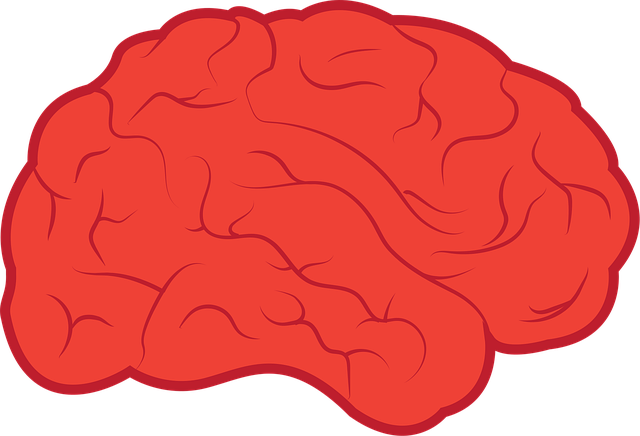The future of brain tumor imaging is transformative, leveraging non-invasive techniques like MRI and cutting-edge AI algorithms to enhance accuracy, speed, and resolution. Advanced MRI technologies offer detailed visualization of cerebral structures, enabling early detection and precise monitoring of tumors. AI algorithms, trained on annotated datasets, automate diagnosis, improving patient outcomes and treatment planning. Integration with radiation oncology, neuroscience, and psychology creates a holistic approach to patient care, combining biological insights with overall health considerations for personalized therapeutic interventions and rehabilitation.
The future of brain imaging is poised for transformative advancements, promising unprecedented insights into our most complex organ. From non-invasive techniques to enhanced resolution scanners, these innovations are revolutionizing neurology. AI-assisted methods show great potential in detecting even the smallest brain tumors, offering early intervention and improved patient outcomes. Integrating brain imaging with other medical disciplines fosters a holistic approach, unlocking new avenues for understanding and treating neurological conditions, particularly in the realm of brain tumor imaging.
Advancements in Non-Invasive Brain Imaging Techniques
The future of brain imaging holds immense promise, particularly in non-invasive techniques that offer safer and more accessible options for studying and diagnosing neurological conditions. One notable area of advancement is in magnetic resonance imaging (MRI) technology. Researchers are continuously enhancing MRI capabilities to improve spatial resolution and scanning speed, enabling more detailed visualization of brain structures and functions. This is especially beneficial for detecting subtle changes associated with conditions like brain tumors, providing earlier and more accurate diagnoses.
Additionally, functional MRI (fMRI) techniques are evolving to track blood flow changes in the brain with greater precision, allowing scientists to map cognitive processes and neural activity in real-time. These non-invasive methods not only aid in clinical settings but also open doors for cognitive neuroscience research, offering a deeper understanding of the complex brain dynamics involved in various behaviors and disorders, including neurodegenerative diseases and mental health conditions.
Improved Accuracy and Resolution: The Next Generation of Scanners
The next generation of brain imaging scanners is poised to bring about significant improvements in accuracy and resolution, offering transformative capabilities for brain tumor imaging. These advanced technologies, such as high-field magnetic resonance imaging (MRI) and functional MRI (fMRI) with enhanced sensitivity, enable researchers to visualize cerebral structures at unprecedented levels of detail. This advancement is particularly promising for detecting and monitoring brain tumors, as it can provide more precise anatomic information and better differentiate between normal tissue and malignant growths.
With improved accuracy comes the ability to identify subtle changes in brain structure and function associated with tumor development. Higher resolution scanners can capture intricate details of blood flow, metabolic activity, and neural connectivity, providing a comprehensive understanding of how tumors interact with surrounding brain tissue. This level of precision paves the way for more effective treatment planning, personalized medicine, and improved patient outcomes in the field of brain tumor imaging.
Targeted Brain Tumor Detection: From Conventional to AI-Assisted Methods
In the pursuit of enhancing brain tumor imaging, the shift from conventional methods to AI-assisted techniques is a game-changer. Traditional brain tumor detection relies on visual inspection by radiologists, often involving complex analysis of MRI or CT scans. This process can be time-consuming and may not always yield accurate results, especially with subtle tumors. However, Artificial Intelligence (AI) has emerged as a powerful tool to revolutionize this domain.
AI algorithms are being developed to analyze medical images more efficiently, identifying even the smallest abnormalities associated with brain tumors. These algorithms learn from vast datasets of annotated images, enabling them to detect patterns that might be invisible to the human eye. By automating parts of the diagnosis process, AI-assisted brain tumor imaging promises faster and more precise detection, ultimately improving patient outcomes and treatment plans.
Integrating Brain Imaging with Other Medical Disciplines: A Holistic Approach
The future of brain imaging holds immense potential for transforming healthcare, especially in diagnosing and treating complex neurological conditions like brain tumors. By integrating brain imaging technologies with other medical disciplines, a holistic approach to patient care can be achieved. For instance, combining advanced brain tumor imaging techniques such as magnetic resonance imaging (MRI) and positron emission tomography (PET) with radiation oncology enables more precise treatment planning and delivery. This interdisciplinary collaboration improves outcomes by considering not just the biological characteristics of the tumor but also its impact on the patient’s overall health and quality of life.
Moreover, integrating brain imaging with neuroscience research and psychology can deepen our understanding of cognitive functions and behavioral patterns. Such knowledge is invaluable for developing personalized therapeutic interventions and rehabilitation programs. As technology advances, we can expect more sophisticated tools that facilitate cross-disciplinary collaboration, enabling healthcare professionals to provide comprehensive care tailored to each patient’s unique needs.
The future of brain imaging technology promises exciting advancements, from enhanced non-invasive techniques to AI-assisted brain tumor detection. These innovations aim to improve diagnostic accuracy and resolution, revolutionizing neurology and neurosurgery. By integrating brain imaging with other medical disciplines, healthcare professionals can adopt a holistic approach to patient care, particularly in managing brain tumors. This cutting-edge technology holds immense potential to improve outcomes and change the course of treatment for those affected by neurological conditions.
